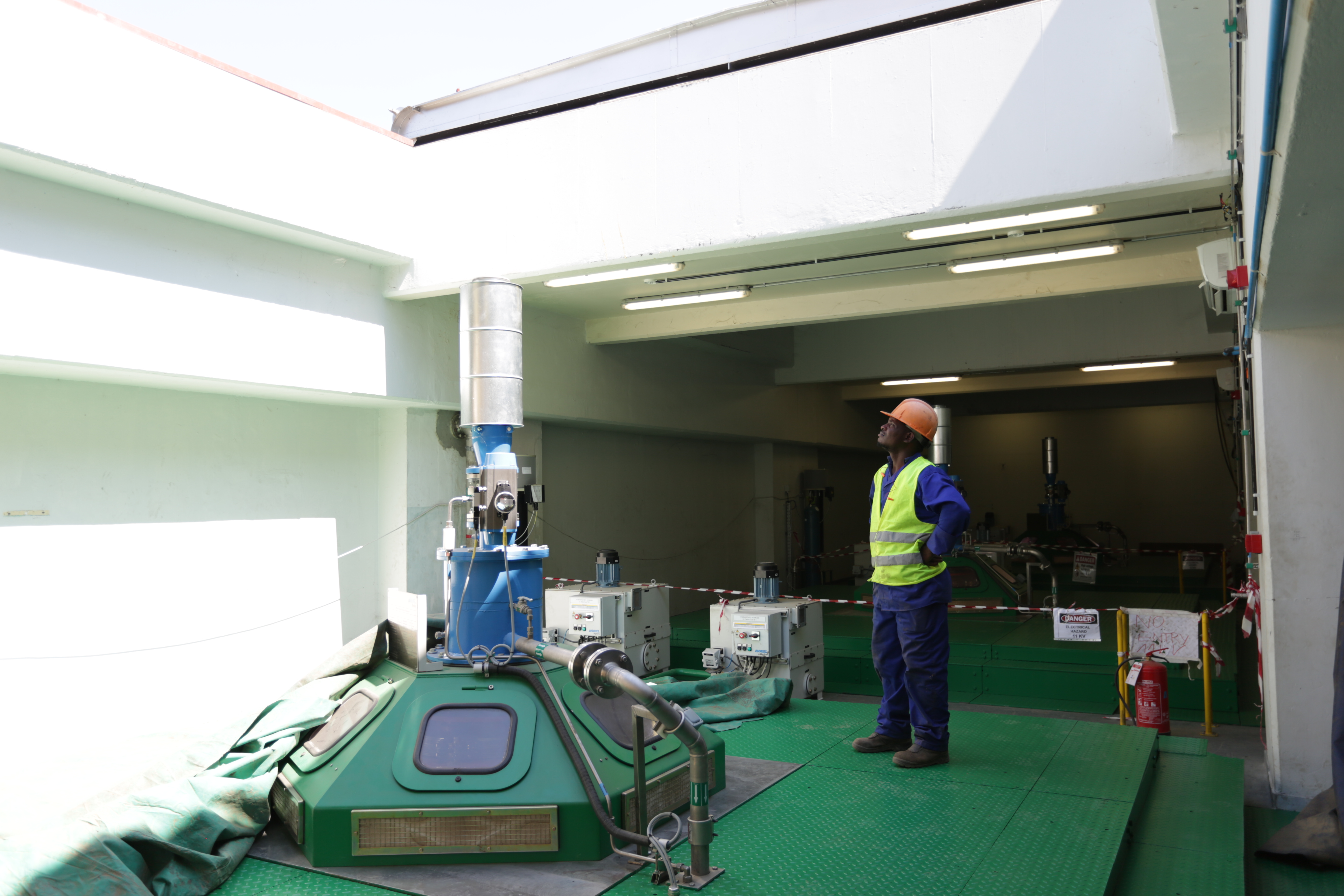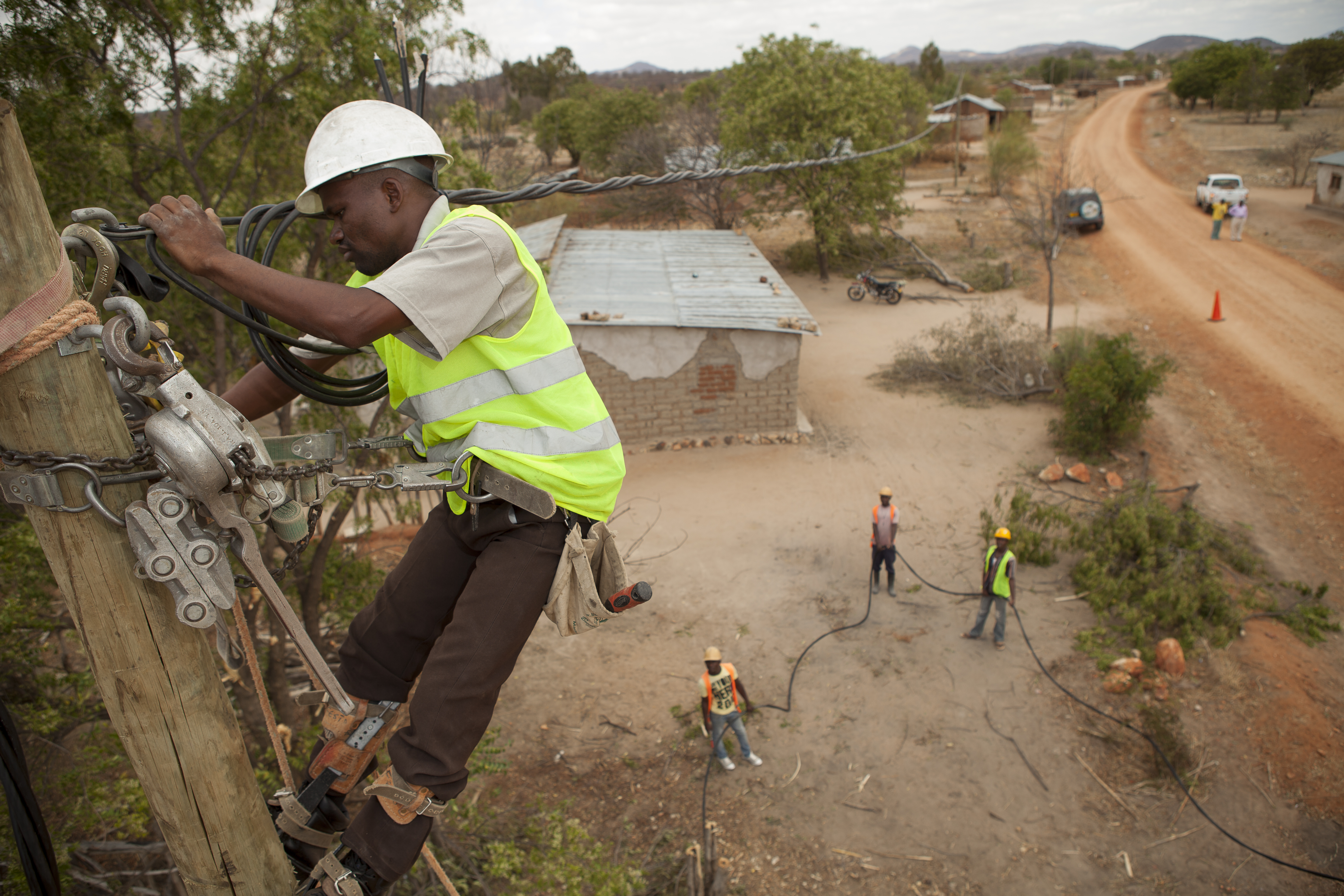More than two-thirds of sub-Saharan Africans—about 600 million people—live without electricity. Inadequate, unreliable, and unequal access to electricity constrains the continent’s ability to connect globally, drives up the cost of business, hinders investment and negatively impacts quality of life. To meet the African continent’s electrification goals, it has been estimated that approximately $40 billion per year in power sector investments will be needed.
To address the concerns of low access to electricity and high barriers to investment, the U.S. Government launched Power Africa in 2013. This effort, which combines the expertise of 12 federal agencies, brings together African governments, the private sector and other partners to increase investment that improves energy security, generates economic growth, and fights poverty.
MCC is a major contributor to the goals of Power Africa. The agency’s approach to helping countries achieve economic growth—through a focus on results, country demand, and good governance—is squarely aligned with the Power Africa effort. The agency has committed approximately $2.5 billion to date to support Power Africa through compacts and a threshold program that improve the quality and reliability of electricity, attract private investment, and build capacity to ensure sustainability.
Working closely with partner countries and the private sector, MCC is laying the foundation for business investment in power projects that will grow economies and reduce poverty across the continent. MCC is assisting governments in planning potential projects and establishing regulatory and institutional structures needed to promote private investment.
Working with Partner Countries
Senegal
In 2018, MCC and the Government of Senegal signed the $550 million Senegal Power Compact designed to strengthen Senegal’s power sector by increasing reliability and access to electricity and aims to help the government establish a modern and efficient foundation upon which the nation’s power system can grow. The government also committed to contribute an additional $50 million towards the program.The compact consists of three projects designed to take a complementary approach to improving the power sector: (i) improving the transmission network to meet the growing demand on the interconnected network in Senegal, (ii) increasing electricity access in rural and peri-urban areas of the south and central regions, and (iii) improving the overall governance and financial viability of the sector.
Benin
In 2015, MCC and the Government of Benin signed the $375 million Benin Power Compact to improve access to electricity for its citizens. Lack of access to electricity constrained economic growth in the country, where only one-third of the population has access to the grid. The Government of Benin is contributing an additional $28 million in support of the compact.“The MCC compact is the most important envelope of investment ever in the history of Benin that has created deep commitments for this and the next administration.”
Lionel Zinsou, Prime Minister of Benin (2015–2016)
Ghana
Through our $316 million compact, MCC is helping the Government of Ghana improve the power sector through investments that will provide more reliable and affordable electricity to Ghana’s businesses and households. The compact also supports Ghana’s efforts to build climate resiliency by funding major energy-efficient initiatives and improving the investment climate for renewable energy.The Government of Ghana is commitment to implementing necessary reforms to make the power sector sustainable and financially sound, which will improve the investment climate for private investment. The compact, which is supplemented by the government’s pledge of at least a $37 million contribution, is expected to generate about $4 billion in new private investment and activity in the coming years.
Liberia
In 2015, MCC and the Government of Liberia signed a $257 million compact that aims to strengthen the power sector through policy reforms and infrastructure investments.The compact includes the rehabilitation of the Mt. Coffee Hydroelectric Plant and associated infrastructure, development of a training center for technicians in the electricity sector, the creation of an independent energy sector regulator, and the development of a nationwide approach to road planning and maintenance. The Mt. Coffee project has already received investments from the Governments of Norway and Germany and the European Investment Bank. MCC is studying complementary investments in training and technical assistance for the energy sector, the Ministry of Land, Mines and Energy, and the Liberia Electric Corporation. This partnership complements the U.S. Government’s efforts to help Liberia recover from the Ebola outbreak.
“We worked to pass the required indicators, including control of corruption that made us eligible for a compact with the Millennium Challenge Corporation... Power is a major priority under the compact. The promise of BIG LIGHTS tomorrow is now close at hand.”
Ellen Johnson Sirleaf, President of Liberia (2006-2018)
Sierra Leone
In 2015, MCC signed a $44 million threshold program with the Government of Sierra Leone to implement policy reforms and strengthen institutional capacity and governance in the water and electricity sectors, with a focus on the capital city of Freetown. The program seeks to increase the financial sustainability of water and electricity services and limit opportunities for corruption in their delivery. The goals of the program will be to establish independent regulations, strengthen key institutions, and increase transparency and accountability. The partnership developed as the country is emerging from the devastating Ebola epidemic and working to regain compact eligibility with MCC.Malawi

MCC
The Nkula A hydropower station underwent a complete rehabilitation as part of MCC’s compact with Malawi.
The compact also invested in strengthening power sector institutions and enhancing sector regulation and governance. Among others, in 2016, MCC supported the Government of Malawi in passing the Electricity Act Amendment into law, thereby strengthening the legal framework for private sector participation in the power sector.
Tanzania

Jake Lyell for MCC
Lineman Festo Shoni from Pike Electric, an American contractor, works to string power lines in Chinangari 1, a rural village in Dodoma Region, Tanzania.
MCC also installed a new control station and switchyard on Zanzibar, as well as 37 kilometers of transmission lines on the island—all to provide an improved source of electricity that will benefit the Zanzibari people and attract outside investment. The 100-megawatt submarine cable is helping to eliminate rolling blackouts and power surges that were regular occurrences in Zanzibar. The cable includes a fiber-optic component that has also improved the island’s Internet access.
Following MCC’s investments, the island’s utility can now handle up to 250,000 customers—almost double its previous capacity.

